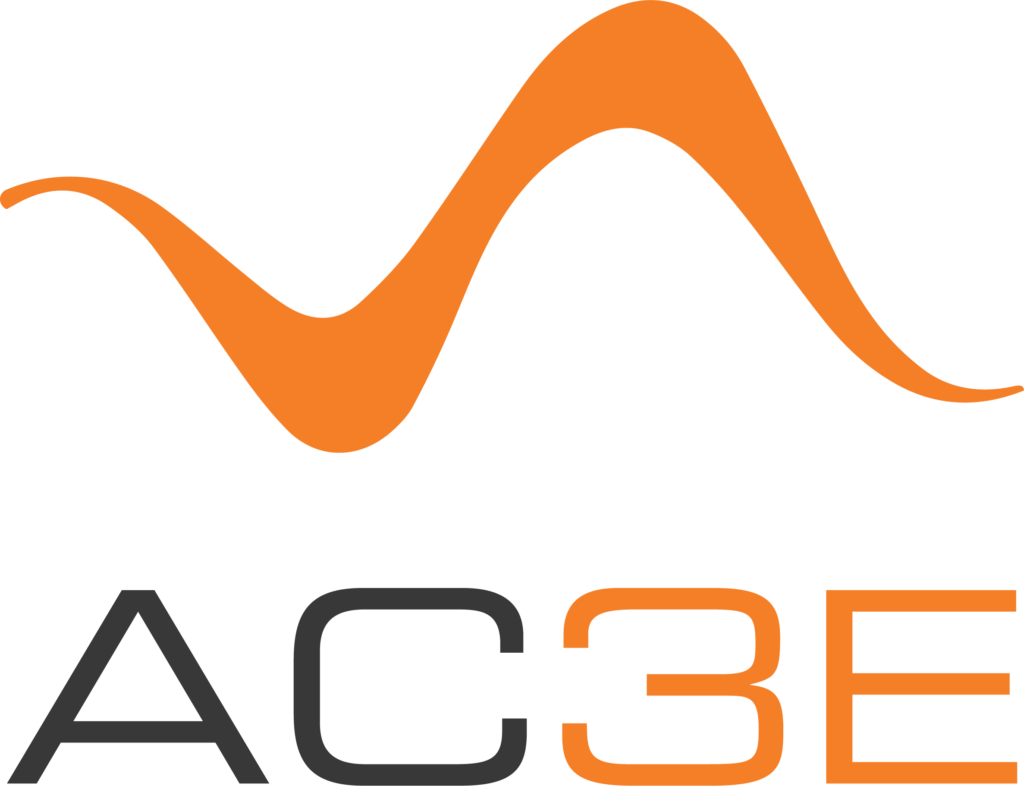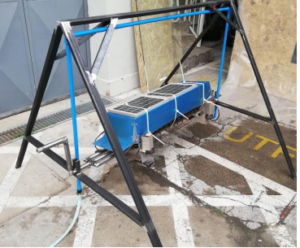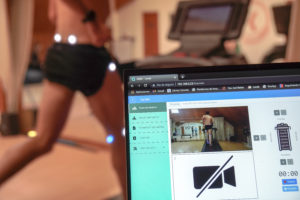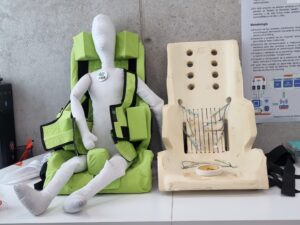[:es]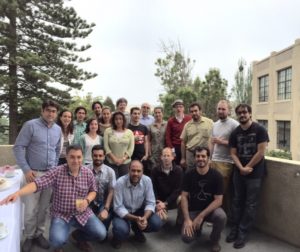 Miembros del UCL Ear Institute de la University College London, uno de los referentes mundiales de la investigación en el tema, se reunieron con profesores del Departamento de Electrónica, investigadores del USM AC3E y otros invitados chilenos, avanzando en la concreción de una alianza.
Miembros del UCL Ear Institute de la University College London, uno de los referentes mundiales de la investigación en el tema, se reunieron con profesores del Departamento de Electrónica, investigadores del USM AC3E y otros invitados chilenos, avanzando en la concreción de una alianza.
La University College London (UCL) es una de las dos universidades más importantes de Londres (Inglaterra) en el área ingenieril. Por sus aulas pasaron alumnos tan connotados como Alexander Graham Bell, Mahatma Gandhi y el biólogo chileno Humberto Maturana, y es dueña de un prestigio que la ha convertido en referente mundial.
Una reputación compartida por el UCL Ear Institute, centro de investigación especializado en problemas de audición perteneciente a dicha casa de estudios, cuyos investigadores visitaron recientemente la Universidad Santa María.
Actualmente, los expertos británicos trabajan en un dispositivo electrónico llamado “implante coclear”, el cual permite recuperar en gran parte sorderas profundas del oído interno y consiste en un electrodo que envía impulsos eléctricos y estimula el nervio auditivo. Una investigación altamente interdisciplinaria, que convoca a médicos, fonoaudiólogos, psicólogos, y también ingenieros.
Potenciar la colaboración precisamente con estos últimos fue el gran objetivo de dicha visita a la USM, donde los Dres. David McAlpine, Torsten Marquardt, Jaime Undurraga y Nick Haywood se reunieron con académicos del Departamento de Electrónica y con el equipo del Centro Avanzado en Ingeniería Eléctrica y Electrónica (AC3E), además de otros profesionales nacionales, realizando un simposio de dos días en dependencias del Plantel nacional.
Un encuentro altamente satisfactorio, pues el equipo liderado por el Dr. Matias Zañartu, académico del Departamento de Electrónica del Plantel e investigador principal de la línea de ingeniería biomédica del AC3E, está avanzando en sus tratativas con el UCL para conformar una alianza, que también incluye a la Escuela de Medicina de la U. de Chile y el Centro Interdisciplinario de Neurociencia de Valparaíso de la U. de Valparaíso, todo con el fin de prosperar en la mejoras de los implantes.
El aporte ingenieril
A pesar que son considerados una de las mejores prótesis existentes, los implantes cocleares tienen una serie de limitaciones importantes. “Hasta ahora, personas con sorderas muy profundas pueden recuperar parte de la audición y pueden entender una conversación. Sin embargo, no es posible aun lograr que escuchen bien sonidos más complejos, como la música”, ejemplifica el Dr. Matías Zañartu. “Actualmente el dispositivo no lograr capturar información armónica y eso afecta severamente la percepción de la música; mejorar ese aspecto es un desafío interesante para todos nosotros como investigadores, porque volver a escuchar es maravilloso, pero un mundo sin música es imposible de imaginar. Nuestro reto es resolver esto mediante el procesamiento de señales”.
No es el primer gran convenio que el equipo concreta: desde hace 4 años el Profesor Zañartu, alumnos y colaboradores de la USM trabajan en conjunto con el Massachusetts Institute of Technology (MIT) y el Massachusetts General Hospital (MGH) de la Universidad de Harvard (EE.UU.), para mejorar la forma en que se detectan y tratan los problemas en las cuerdas vocales, labores donde la USM ha adquirido paulatinamente un mayor protagonismo.
El Laboratorio de Voz USM fue una de las instalaciones que conocieron los representantes de UCL en esta ocasión, además de interiorizarse en las labores del Centro AC3E. Como explica el Dr. Zañartu, “se interesaron mucho en los avances que ha tenido nuestro trabajo en voz humana. Yo estimo que si todo sale bien, es posible que en un tiempo más podamos llegar con la UCL al mismo nivel de nuestra relación con el MIT, especialmente en cuanto a postular conjuntamente a grandes fondos de financiamiento”, afirma.
Tras la primera visita de los británicos, el siguiente paso consiste en un viaje del académico a Londres en abril, para participar en una conferencia internacional y conocer las labores del Ear Institute en terreno, así como su infraestructura e instalaciones. “Esta primera fase buscó que los equipos se conocieran, lo que resultó muy bien pues ambas partes tuvimos una muy buena impresión, así que yo estimo que el próximo año postularemos a nuevos fondos para dar continuidad a esta naciente relación UCL-USM”, consigna el Dr. Zañartu.
Fuente: Dirección de Comunicaciones USM[:en] Members from the UCL Ear Institute of the University College London, a worldwide reference on the subject, gathered with professors from the Electronics Department, USM AC3E researchers and other Chilean guests, making progress towards forming an alliance.
Members from the UCL Ear Institute of the University College London, a worldwide reference on the subject, gathered with professors from the Electronics Department, USM AC3E researchers and other Chilean guests, making progress towards forming an alliance.
The University College London (UCL) is one the two most important ones in London in engineering. Renowned students such as Alexander Graham Bell, Mahatma Gandhi and Chilean biologist Humberto Maturana have passed through its halls, and holds a prestige that has made it a worldwide reference.
A reputation shared by the UCL Ear Institute, research center specialized in hearing problems that’s part of said university, whose researchers recently visited Universidad Santa María.
Currently, British experts are working on an electronic device called “cochlear implant” that makes a significant recuperation from profound hearing loss in the inner ear possible. It’s a highly interdisciplinary research that summons doctors, speech therapists, psychologists and engineers.
Promoting the collaboration between these specialists was the main objective in said visit to the USM, where Drs. David McAlpine, Torsten Marquadt, Jaime Undurraga y Nick Haywood gathered with academics from the Electronics Department and with the Advanced Center for Electric and Electronic Engineering team, along with other Chilean professionals, conducting a two day symposium in the USM.
It was a highly successful meeting, since the team led by Dr. Matias Zañartu, Electronic Department academic from campus and main researcher in the AC3E biomedic engineering line, is pressing ahead with discussions with the UCL towards forming an alliance, which also includes the Universidad de Chile School of Medicine and the Universidad de Valparaíso Interdisciplinary Center of Neuroscience, in order to develop improvements on these implants.
Engineering contribution
Despite the fact that they’re considered the best prosthetics in existence, cochlear implants have a series of noteworthy limitations. “Until now, people with profound deafness can regain part of their hearing and can understand a conversation. Nevertheless, it isn’t possible for them to hear more complex sounds, like music.” Says Dr. Matías Zañartu. “Currently the device isn’t able to acquire harmonic information and that severely affects the perception of music; improving this aspect is an interesting challenge for all of us as researchers, because being able to hear again is wonderful, but a world without music is impossible to imagine. Our goal is to solve this through single processing.
This isn’t the first treaty that the team seals: since 4 years ago Professor Zañartu, students and USM collaborators have been working with the Massachusetts Institute of Technology (MIT) and the Massachusetts General Hospital (MGH) from Harvard, to improve the way that vocal cord problems are detected and treated, efforts in which the USM has gained major prominence.
The USM speech lab was one of the facilities that the UCL representatives got to know on this occasion, along with internalizing with the AC3E center’s duties. Dr. Zañartu explains that, “they were very interested in the progress made in our research on the human voice. If everything works out, I think it’s possible to gain with UCL the same relations that we have with MIT, especially in terms of conjointly applying to great amounts of funding.
Following this first visit, the next step is Dr. Zañartu’s trip to London in April, to take part in an international conference and to get to know the Ear Institute’s tasks on field, as well as their infrastructure and facilities. “This first phase was for the teams to get to know each other, which was very successful since both parties got a good impression of each other, so I think next year we’ll be applying to new funding in order to give continuity to this UCL-USM newfound relations. “, says Dr. Zañartu.
Fuente: Dirección de Comunicaciones USM[:]


